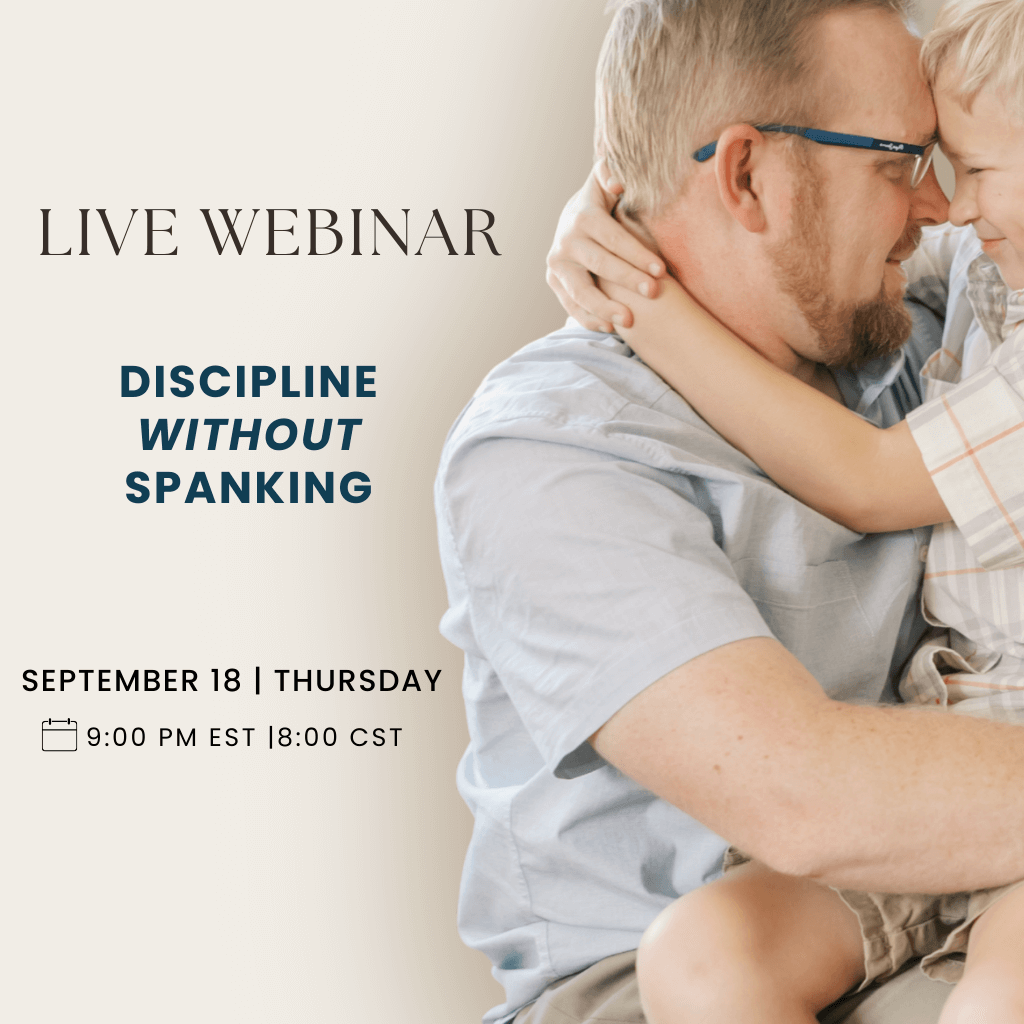
First, parenting without punishments isn't permissive. Here's why:
Jesus is our model. When we look at the life, teaching, and ministry of Jesus, we see the life-changing power of discipleship. Jesus confronted, rebuked, and corrected sin, but He never punished His disciples or followers. Even when He had the right to call for legal punishment, He chose mercy. Was Jesus permissive? No!
Jesus' warnings about mercy
Not only did Jesus give us a model for grace and mercy, but He also gave a warning about mercy in Matthew 18:23-35. And surprisingly, that warning is about being stingy with forgiveness and mercy—not being too generous with it. While His parables are not necessarily directives, the fact that His only warning on the topic is about not showing enough mercy, we as Christ- followers should give serious consideration to the implications.
Grace and mercy are not mutually exclusive with accountability
One of the key pillars of Peacemaker Parenting is that we recognize the need for accountability and restoration. We also recognize that God postures Himself toward us in reconciliation before we seek repentance. God initiated restored relationship and it cost Him everything and me nothing. So if we're looking to parent our children with Jesus at the center of our home and family, we have to be willing to bear the "cost" of repair when it is beyond their ability or capacity to repair. Understanding this means that accountability looks like restoration, not retribution and that it is a virtue taught over many years.
Avoiding Permissiveness: Remember your parenting is a calling, not a reaction to how you were parented.
For those of us who are followers of Christ Jesus, how we parent should first and foremost be a calling and conviction of the Holy Spirit in our lives, and it should reflect the heart, character, teaching, and life of Jesus.
It's much easier to slide into permissiveness when our parenting choices are made as a reaction to how we were parented. Rather than moving forward in the Way of Jesus, we swing the pendulum in the opposite direction of our upbringing. This is, quite simply, just another form of reactive parenting.

Avoiding Permissiveness: Respond to, but don't feel responsible for your child's emotions.
You are responsible for nurturing, connecting with, and meeting your child's needs. And you're responsible for teaching them about emotions. But that is not the same thing as fixing their feelings or trying to make sure they're happy all the time. When you feel responsible for making sure your child is happy, you'll wind up giving in to demands, whims, and wishes just to keep the peace. This is neither Jesus-centered nor healthy parenting. Instead of fixing, respond with understanding and compassion while also holding necessary boundaries.
Avoiding Permissiveness: Be clear, compassionate, and calm with boundaries
Kids are going to experience disappointment, confusion, upset, sadness, and overwhelm when it comes to holding boundaries. Those are normal human emotions that they'll experience thousands of times in life. Parents not being overwhelmed by their feelings teaches them how not to be overwhelmed by their feelings, so it’s up to us to learn to be be the non-anxious presence that they need.
Your calm nervous system quite literally teaches their nervous system how to return to a state of calm (over many years and with lots of practice!).
Focus on building your personal calming toolkit: try things like butterfly hugs, breath prayers, rubbing a circle on your chest, spending time in nature, getting some intense exercise more regularly, etc and see what helps you the most.
Avoiding Permissiveness: Be aware of developmental ability and capacity
Understanding how God designed children to develop is critical for having wisdom about your expectations for them. Unreasonable expectations are neither Christlike nor healthy. When you understand a child's ability and capacity, you are able to better discern how to respond to age-appropriate, but unacceptable behaviors. This requires so much wisdom, attunement to your child's physical, emotional, and sensory needs, self-awareness, and emotional maturity. It is a learning process, and that's okay.
Avoiding Permissiveness: Make, practice, and evaluate a response plan
One of the most tangible ways to minimize permissiveness is to have a plan of action. That plan should be based on your core values, an understanding of your child's development and learning style, and your ability and capacity. For parents who tend to be easily angered or reactive, the first part of their plan might be to step away in order to calm down.
While parents who don't struggle with anger will not need this physical reminder to be calm.) Writing out a plan of action for some of your most challenging parenting situations helps you be proactive and responsive in the heat of the moment.
Looking for tools that will help you parent with peace and purpose? Check out our upcoming workshop:













0 Comments